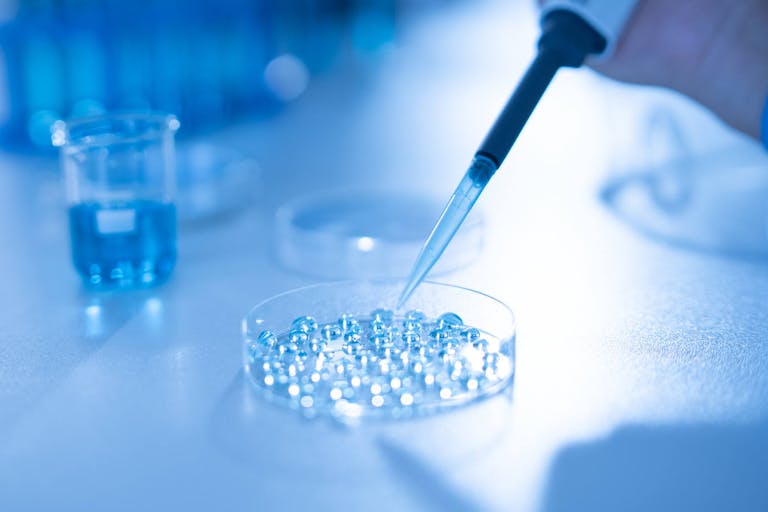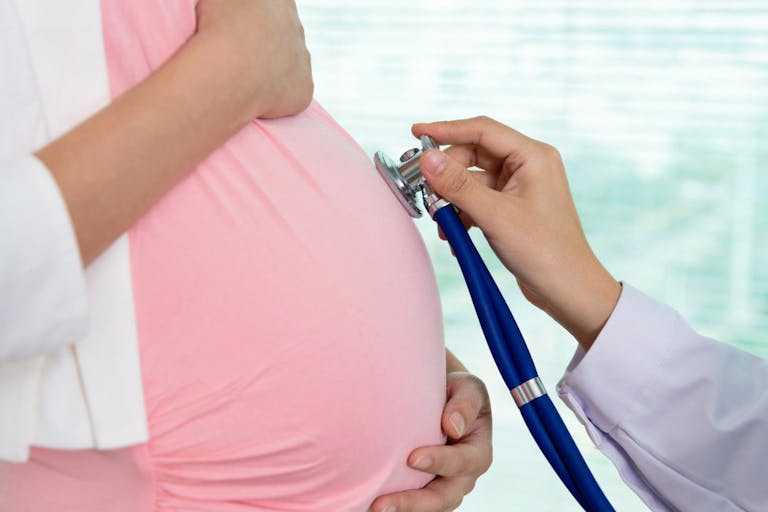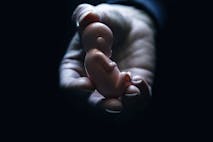
Research shows Catholic support for IVF declines once Church teaching is understood
Angeline Tan
·
Woman gives birth to baby boy following uterus transplant
A woman has given birth following a uterus transplant at the University of Alabama (UAB) Hospital. She is reportedly the first woman to give birth using a transplanted uterus outside of a clinical trial — and her son, born in May, was the first baby born via the UAB Comprehensive Transplant Institute and UAB Medicine uterus transplant program.
The woman, Mallory, was born without a uterus due to a condition called Mayer-Rokitansky-Küster-Hauser syndrome. Told she would never be able to carry a child, she said she had “come to terms” with the diagnosis, but “always felt like something … was lacking.” She and her husband Nick took part in the uterus transplant program at UAB, which requires the use of IVF. She was given a donated uterus and nine months later underwent an embryo transplant.
“I never once thought ‘What if this doesn’t work,'” said Mallory. “I knew it would.”
Ethical concerns
About a hundred uterus transplants have been carried out around the world so far… and while every human being — from fertilization to natural death — has inherent value, the practice of IVF carries multiple ethical concerns.
The use of a transplanted uterus always requires a couple to undergo IVF because the implanted uterus is not connected to the woman’s fallopian tubes. IVF carries a high death toll, with only a small percentage of the embryos created surviving to live birth. Each round of IVF only carries a 20-30% chance of successful birth with couples at times creating up to 20 embryos during each round. As a result, an estimated one million valuable and worthy people have been born thanks to IVF — but 1.7 million equally valuable and worthy people have died and another one million are believed to be currently frozen in the United States while their parents determine what to do with them.
So many embryos — human beings — are created during a typical IVF cycle that doctors select the ones deemed to be the “highest quality.” Embryos are even labeled by a grading system determined by how likely they are to survive, assigned designations such as 5AA or 4AB. This process reduces children to mere consumer products on a shelf rather than the unique and valuable individuals that they are. Classifying human beings based on their perceived health is a form of eugenics.
Meanwhile, “surplus” babies are either left frozen indefinitely, donated to another couple, destroyed, or donated to science. No human should ever be deemed “surplus.”
Article continues below
Dear Reader,
In 2026, Live Action is heading straight where the battle is fiercest: college campuses.
We have a bold initiative to establish 100 Live Action campus chapters within the next year, and your partnership will make it a success!
Your support today will help train and equip young leaders, bring Live Action’s educational content into academic environments, host on-campus events and debates, and empower students to challenge the pro-abortion status quo with truth and compassion.
Invest in pro-life grassroots outreach and cultural formation with your DOUBLED year-end gift!
The physical and emotional toll of IVF on children
The children who do survive the IVF process are at increased risk for physical effects such as low birth weight, premature birth, perinatal mortality, cerebral palsy, and birth defects compared to children conceived naturally. They are also at risk for high blood pressure, and girls conceived through IVF can have advanced bone age and hormonal imbalances during puberty.
Children conceived with IVF can face emotional struggles as well, with an increased risk of ADHD, autism, and depression, often carrying the weight of feeling like a consumer product. Claire, who was conceived through IVF, explained that she always knew her parents loved her and wanted her, but that learning about her conception caused her emotional pain. She said:
Somehow, somewhere, my parents developed the idea that they deserved to have a baby, and it didn’t matter how much it cost, how many times it took, or how many died in the process. They deserved a child. And with an attitude like that, by the time I was born they thought they deserved to have the perfect child… as Dad defined a perfect child. And since they deserved a child, I was their property to be controlled, not a person or a gift to be treasured.
Risks of uterine transplant
In addition to the risks and ethical concerns of IVF, uterus transplants carry their own controversy. As previously reported by Live Action News, “Dr. Robyn Horsager-Boehrer, M.D., of Chief of OBGYN at a University of Texas Southwestern Medical Center, notes that the anti-rejection drugs women are required to take can cause ‘low birth weight, premature birth, and increased risk of birth defects.’ In one Swedish uterine transplant, organ rejection began at around 18 weeks of pregnancy, and although an increase in drugs prevented rejection, the baby was born premature at 31 weeks as a result of the mother developing pre-eclampsia.”
Risks to the mother include blood loss requiring transfusion, infection, rejection of the uterus, and adverse reaction to the anti-rejection medications. In addition, a transplanted uterus is only usable for a maximum of two deliveries, then it must be removed. Mallory gave birth to her son in May with her second transplanted uterus.
Dr. Horsager-Boehrer thinks uterus transplantation is not ethically justifiable, saying, “For an elective procedure meant to result in pregnancy, the risks outweigh the potential benefits.”

Live Action News is pro-life news and commentary from a pro-life perspective.
Contact editor@liveaction.org for questions, corrections, or if you are seeking permission to reprint any Live Action News content.
Guest Articles: To submit a guest article to Live Action News, email editor@liveaction.org with an attached Word document of 800-1000 words. Please also attach any photos relevant to your submission if applicable. If your submission is accepted for publication, you will be notified within three weeks. Guest articles are not compensated (see our Open License Agreement). Thank you for your interest in Live Action News!

Angeline Tan
·
Analysis
Cassy Cooke
·
Analysis
Cassy Cooke
·
Analysis
Cassy Cooke
·
Analysis
Cassy Cooke
·
Analysis
Nancy Flanders
·
Human Interest
Nancy Flanders
·
Politics
Nancy Flanders
·
Human Interest
Nancy Flanders
·
Politics
Nancy Flanders
·
Human Interest
Nancy Flanders
·